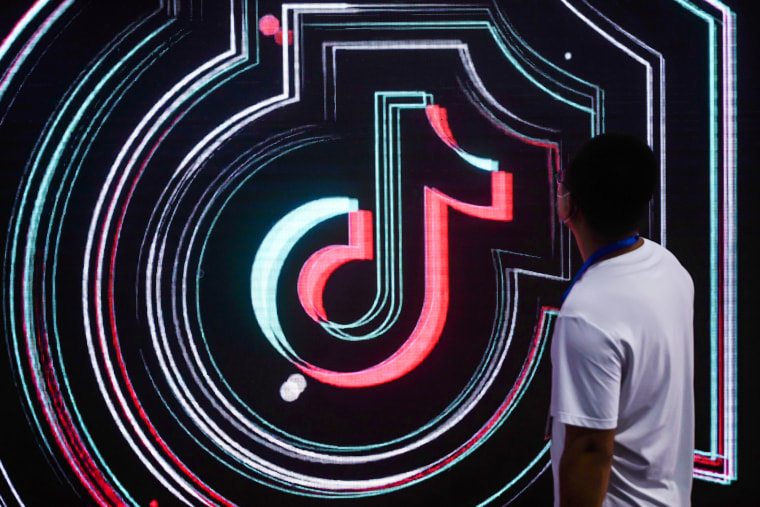The months-long standoff between Universal Music Group and TikTok over royalty payments and AI policies is finally over, at least for the time being, with the announcement that the two entities have struck a deal to bring the label’s music back on the platform.
As part of the agreement, the companies stated that they will “deliver improved remuneration for UMG’s songwriters and artists, new promotional and engagement opportunities for their recordings and songs and industry-leading protections with respect to generative AI.”
UMG’s music will return to the platform imminently, and the companies will collaborate on realizing “new monetization opportunities utilizing TikTok’s growing e-commerce capabilities and will work together on campaigns supporting UMG’s artists across genres and territories globally.”
“This new chapter in our relationship with TikTok focuses on the value of music, the primacy of human artistry and the welfare of the creative community,” said Lucian Grainge, chairman and CEO of UMG. “We look forward to collaborating with the team at TikTok to further the interests of our artists and songwriters and drive innovation in fan engagement while advancing social music monetization.”
Shou Chew, CEO of TikTok, added, “Music is an integral part of the TikTok ecosystem and we are pleased to have found a path forward with Universal Music Group. We are committed to working together to drive value, discovery and promotion for all of UMG’s amazing artists and songwriters, and deepen their ability to grow, connect and engage with the TikTok community.”
Beginning in February, the ban resulted in a near-complete blackout of all music owned, distributed and published by the company on the platform — the videos were still there, but the music was muted — although there was no shortage of artists breaking the ban, both officially (Taylor Swift, in an apparently UMG-sanctioned promotion around her new album, “The Tortured Poets Department”) and unofficially (plenty of others). While UMG’s reasons for the ban were indisputably high-minded — an attempt to fight for greater compensation and intellectual-property protections for its artists and, of course, to protect its own interests — there is no question that it caused significant disruption in countless artists’ careers.
For the past five years, TikTok has been the single most influential music-discovery and promotion vehicle, and music companies have badgered their artists to become active or “viral” on the platform, leading some to spend their own money in an effort to do so. But beginning in February, UMG artists suddenly found those efforts muted by their own company. A month later, songs with writers signed to Universal’s publishing division faced a similar fate.
The UMG ban seemed to have little substantive effect on TikTok, apart from some bad press, but of course the company now has much bigger fish to fry: Legislation, signed into law on April 24 by President Biden, that will ban the app in the U.S. unless Bytedance, its Chinese parent company, divests its ownership stake. TikTok says it plans to file a lawsuit challenging the new U.S. law on First Amendment grounds. If that fails, the app could become outlawed in the U.S. as early as January 2025. It seems likely that the combinations of the bigger struggle on TikTok’s horizon, and unsteady support for UMG’s move (not to mention its apparent exception for Swift) led both companies to cut their losses and stand down.
UMG addressed the situation broadly in the letter to artists it issued on Jan. 30 informing them of the impending ban. “TikTok makes little effort to deal with the vast amounts of content on its platform that infringe our artists’ music and it has offered no meaningful solutions to the rising tide of content adjacency issues, let alone the tidal wave of hate speech, bigotry, bullying and harassment on the platform,” it reads in part. “The only means available to seek the removal of infringing or problematic content (such as pornographic deepfakes of artists) is through the monumentally cumbersome and inefficient process which equates to the digital equivalent of ‘Whack-a-Mole.’ … We will always fight for our artists and songwriters and stand up for the creative and commercial value of music.”
The ban was difficult to enforce anyway: Unlike streaming services, rights-holders — usually record labels — are not the only entities who can upload music to the platform; virtually anyone can, and since the app is controlled by TikTok, labels and other rights-holders cannot do anything about infractions except issue takedown notices and other legal notifications. Also, TikTok’s detection software can be eluded by some sped-up, slowed-down or otherwise altered songs, which many users do when including music in their posts. There is also the possibility that some involved parties turned a blind eye to some infractions.
